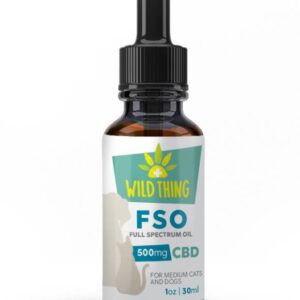IBS – or irritable bowel syndrome – is a common affliction that affects many people, and also their dogs.
Many senior canines can develop gastrointestinal, gut and bowel disorders over a lifetime of eating the same food, or having trouble with a consistent diet. Pet owners often attribute many gastrointestinal or bowel issues with food or nutrition, but irritable bowel syndrome is actually most likely linked to stress or anxiety.
IBS is not necessarily a serious illness, but it can significantly impact your dog’s quality of life – not to mention create quite a mess in your household.
Ailment Guides:
Common Digestive Problems In Cats
Panic Attacks In Dogs
Feline Dermatitis
canine ibs
What is IBS? What Are the Causes?
Irritable Bowel Syndrome is a gastrointestinal infection that causes inflammation, convulsions and extreme discomfort in your dog’s bowel and intestines. It is characterized by inflamed walls of the intestines, brought on by food allergies, stress or anxiety, and a variety of environmental factors such as pollutants or harmful chemicals.
IBS causes vomiting, diarrhea, nausea and discomfort in your dog and can be difficult to manage due to the unpredictable, sporadic nature of when it strikes. As previously mentioned, stress is often the most likely root cause of IBS. Understanding what factors might be causing your dog anxiety, and minimizing those stressors, can be key to preventing/limiting IBS.
Conversely, what your dog ingests – both in terms of nutrition and medication – can have adverse effects on their gastrointestinal health. Sudden food-related allergies, reactions to medications, or a diet that is lacking nutrition can create an irritated/inflamed GI tract.
symptoms of irritable bowel syndrome:
What your dog ingests – both in terms of nutrition and medication – can have adverse effects on their gastrointestinal health. Sudden food-related allergies, reactions to medications, or a diet that is lacking nutrition can irritate or inflame the GI tract.
Some symptoms of Irritable Bowel Syndrome:
- Chronic Diarrhea
- Audible Stomach Noises
- Gas & Bloating
- Vomiting
- Sporadic, Unexpected passing of feces/urine
- Constipation
- Wince-at-the-Touch in the upper and lower abdominal region
- Loss of appetite
- Lethargy
Learn More:
10 Reasons To Use Full Spectrum Hemp Oil For Dogs
What Are The Benefits Of Cbd Oil And Treats For Dogs
The Right Way To Introduce Cbd To Your Pets
Why CBD can be an effective treatment & preventative for ibs
CBD – or Cannabidiol – can be very beneficial for balancing your dog’s pain and discomfort from I.B.S.
CBD oils and treats can assist in the prevention of infections and reduction of tumors, lessen the effects of lethargy, gastrointestinal issues and skin & coat deterioration. CBD is generally effective and it has been widely used for treatment of inflammation and soothing the gastrointestinal tract. Think of CBD as a supplement that can reduce the severity and frequency of most – if not all – of irritable bowel symptoms.
CBD has the capacity to block pain receptors from being triggered, effectively stopping chronic pain and discomfort from taking its toll on your canine. Cannabidiol does not just block the pain however, it can also reduce swelling and inflammation.
Cannabidiol is a phytocannabinoid that has been shown to have a prominent effect on numerous ailments – including epilepsy, arthritis and cancer. Remedies containing CBD achieve this by interacting with your dog’s endocannabinoid system. Almost all animals, like people, have an endocannabinoid system; this network of neurotransmitters is integral to physiological processes like memory, mood, pain, stress and appetite.
This complex biosystem is very prevalent in dogs in comparison to other species. Canines have a high concentration of CB1 & CB2 receptors in their brainstem. CB1 receptors affect the brain, lungs, vascular system and muscles, gastrointestinal function; whereas, CB2 receptors are linked to bones, skin spleen and glial cells. In combination, CB1-CB2 collaborate in influencing the overall immune system, liver, kidneys, bone marrow, pancreas and brainstem.
CBD can help your dog by producing anti-inflammatory, anti-anxiety, antipsychotic, antispasmodic and analgesic effects indirectly – that is, CBD interacts with your dog’s ECS (Endocannabinoid System) opposite to THC which directly binds to the Cannabinoid Receptors of the body. This does two things: makes the positive remedial properties more bioavailable to your dog; and lessens or negates the psychoactive effects, such as those associated with THC ingestion.
As you can see by the wide scope of ailments that CBD effects, it is clear how introducing CBD into your dog’s routine can help to maintain a healthy gastrointestinal system.
Ailment Guides:
What Causes Seizures In Dogs
Natural Remedies For Seizures In Dogs
How To Train A Puppy Basic Commands









